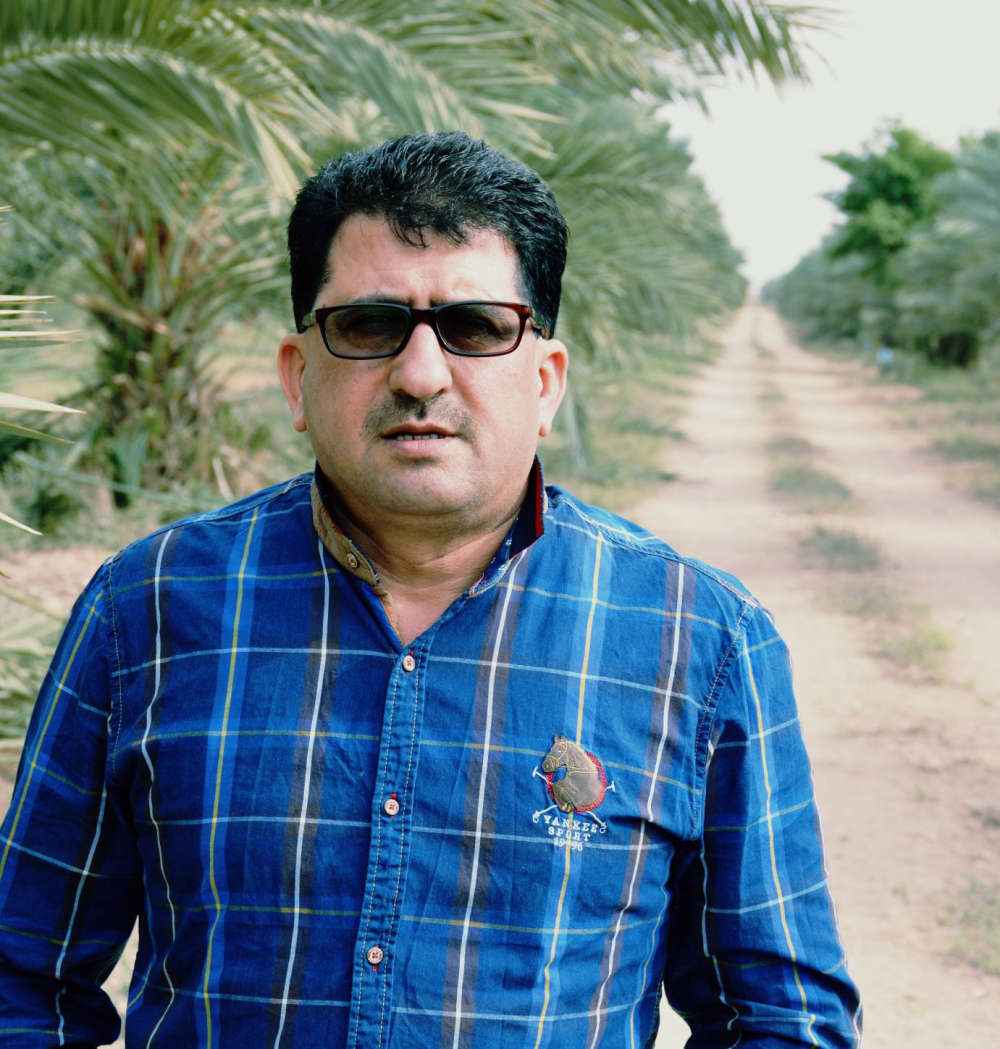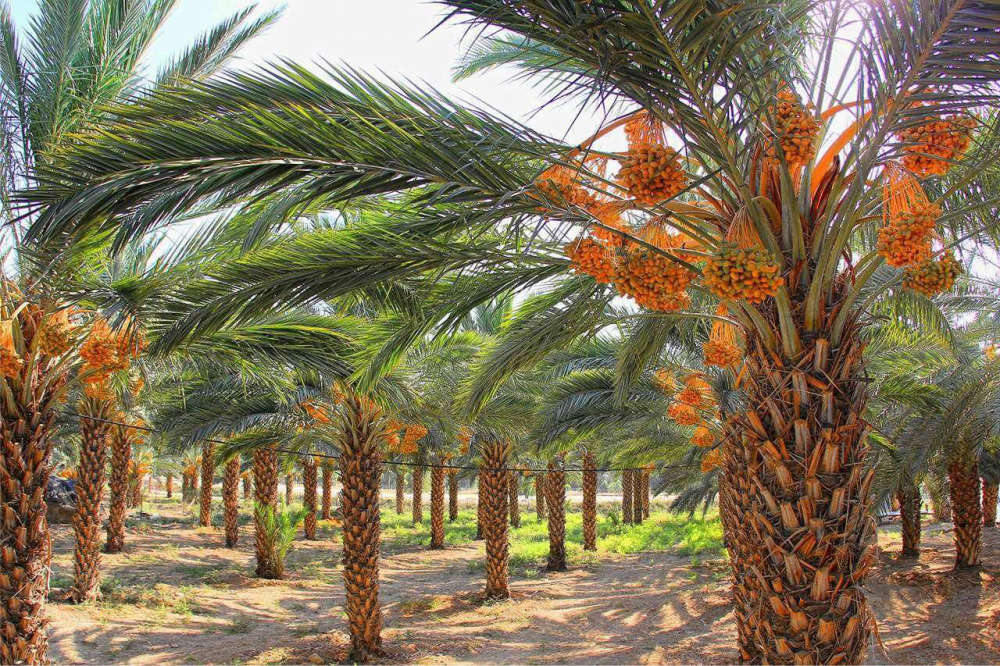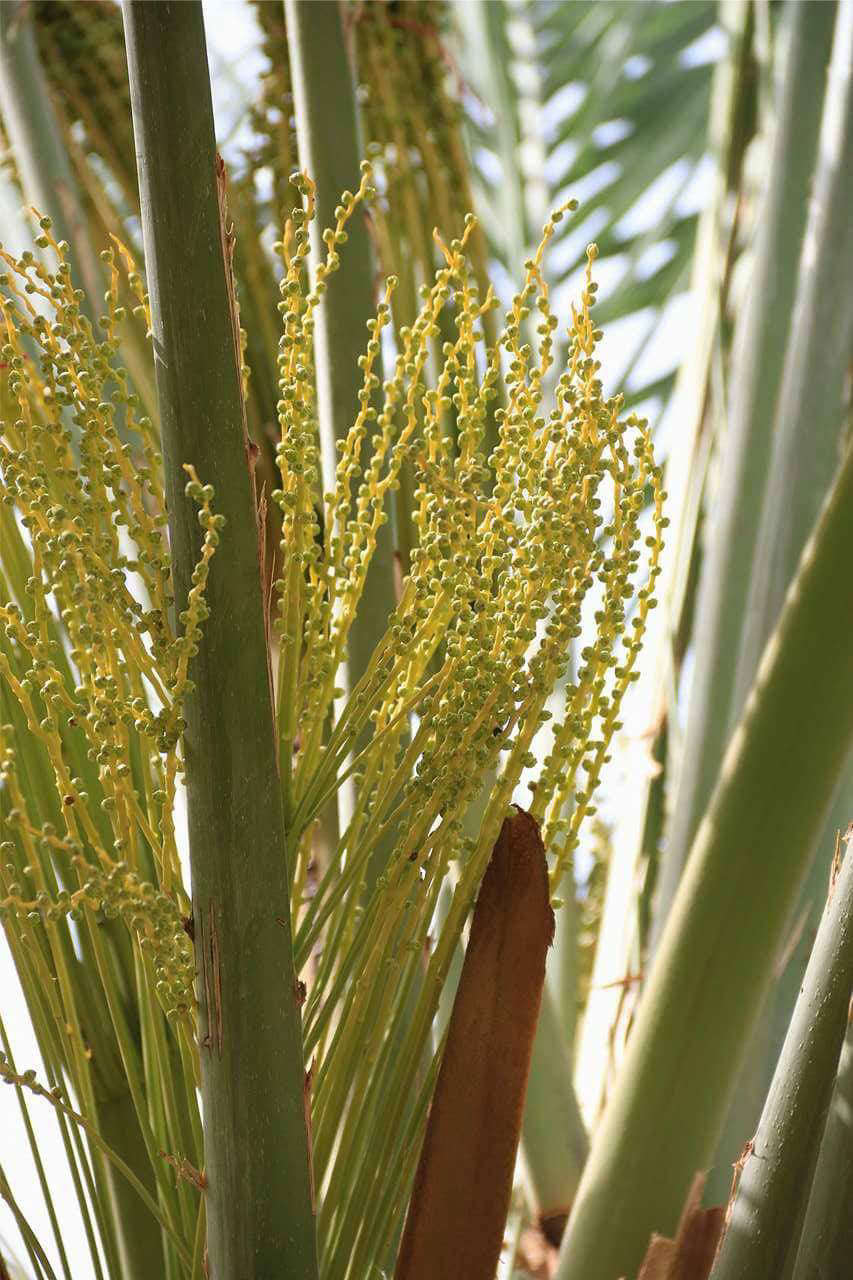In the late 1990s, the areas planted with bananas and citrus fruits in the central Jordan Valley declined due to the scarcity of water and the fluctuation of prices. These historical crops have been replaced by the cultivation of palm trees for a number of reasons: the dry hot climate is suitable for the cultivation of palm trees and annual production levels as well as the relevant local and international prices remain stable. These factors have led many farmers to move quickly towards this crop, which reached its peak in the years 2005–2015. A total of about 250,000 trees were planted at the end of 2016. Their production is expected to reach about 25,000 tons in 2020, approximately 90 percent of which is to be exported to international markets. This not only provides a good source of hard currency, it also offers a thousand opportunities and creates an environment that is suitable for related, complementary industries such as the dough industry for date sweets, date molasses, carton factories, and date industry with nuts.
The success of delicious Medjool dates can serve as an example for the cultivation of Hebron grapes, which are characterized by their special taste and high quality, as well as for the cultivation of apricots and almonds from the central and northern areas of Palestine, or for the export of Palestinian olive oil.
Much attention has been given to the development of this sector, be it in governmental institutions, such as the Palestinian Ministry of Agriculture, or nongovernmental organizations, such as the Palestinian Trade Center. Interest has focused on providing all forms of logistical support to this sector and promoting it in the markets of all countries. But development has not been without obstacles and challenges caused mainly by the military occupation, which in general, does not allow Palestinian farmers to access the water resources required for the continuation and development of this vital sector.
Medjool dates have a sweet taste; a dry date weighs 50 grams, whereas a damp date weighs 60 grams. Dates are not a cause of diabetes but are a good source of fiber.
According to various studies, the modern origin of Medjool dates came about through the transfer of some seedlings from the eastern region of the Arabian Maghreb to the United States in the 1920s. As the local trees were threatened by disease, efforts were made to protect and preserve them, and so seedlings were sent to California where the climate is suitable for cultivation. On the way, there was a labeling mix-up, and the seedlings were named “unknown,” which in Arabic resulted in the name Mejhool or Medjool. Seedlings were cultivated, and California became the main source of this crop, producing high-quality dates. In the 1970s, seeds were transferred from California to Israel to be cultivated in the Palestinian Jordan Valley, specifically around the city of Jericho, the most suitable location for planting this delicate type of palm, where the climate is relatively warm in winter with low humidity. The occupation became the first producer of high quality dates.
At the end of the 1980s, and despite all the obstacles and challenges of the Israeli occupation, the process of planting palm trees by Palestinian farmers started with 136 saplings in Al-Jiftlik. Although it was a simple step, it was important in that it broke the occupation monopoly of this type of agriculture. It forms the beginning of the Palestinian cultivation of palm trees in the Jordan Valley that reached a total of about 250,000 trees by 2016, as reported by Jericho’s directorate of agriculture in Jericho in 2016.
The rapid growth of palm groves has coincided with the emergence of private Palestinian companies that have taken on the tasks of sorting, packaging, and exporting dates to all parts of the world, targeting especially the American, European, and Southeast Asian markets. High-quality Palestinian dates have become a special sign in large international food exhibitions such as the Gulfood Exhibition in Dubai, Anuga and Fruit Logistica trade shows in Germany, and Halal Fiesta (HALFEST) in Malaysia, among others. The Palestinian Trade Center PALTRADE plays a great role in supporting the sector in terms of facilitating participation, communication, organization, and publicity.
It is important to mention that the sector needs more operating companies to absorb the increasing quantity of production and maintain the high level of quality that characterizes the Palestinian dates. New capital must be attracted for investment into this sector to assure its continued growth and development, strengthen the steadfastness of Palestinian farmers, create jobs for thousands of workers, and connect Palestinian products to all international forums.
Palestinian production reached 10,000 tons in 2017, and 90 percent of it was exported to America, Europe, Russia, Southeast Asia, and the Middle East through a group of specialized Palestinian companies. With production expected to increase in the coming years, more packaging and storage companies are required to maintain the specifications and standards of this important product and assure the competitiveness of Palestinian dates. The provision of water is the biggest challenge to the continuity of this vital emerging sector. The promotion of opportunities for development and expansion requires concerted domestic and international efforts to pressure the occupation to allow Palestinian access to groundwater resources. Without water, Palestinians cannot maintain what exists, nor can they expand and cultivate new areas, which would create great opportunities for Palestinian self-reliance and economic growth, taking into account the existence of large expanses of arable land in the Palestinian areas and the efficiency of Palestinian farmers. Palestinians possess a deep connection to their land and all efforts must be extended to protect them from further losses.
Article photos courtesy of the author.




